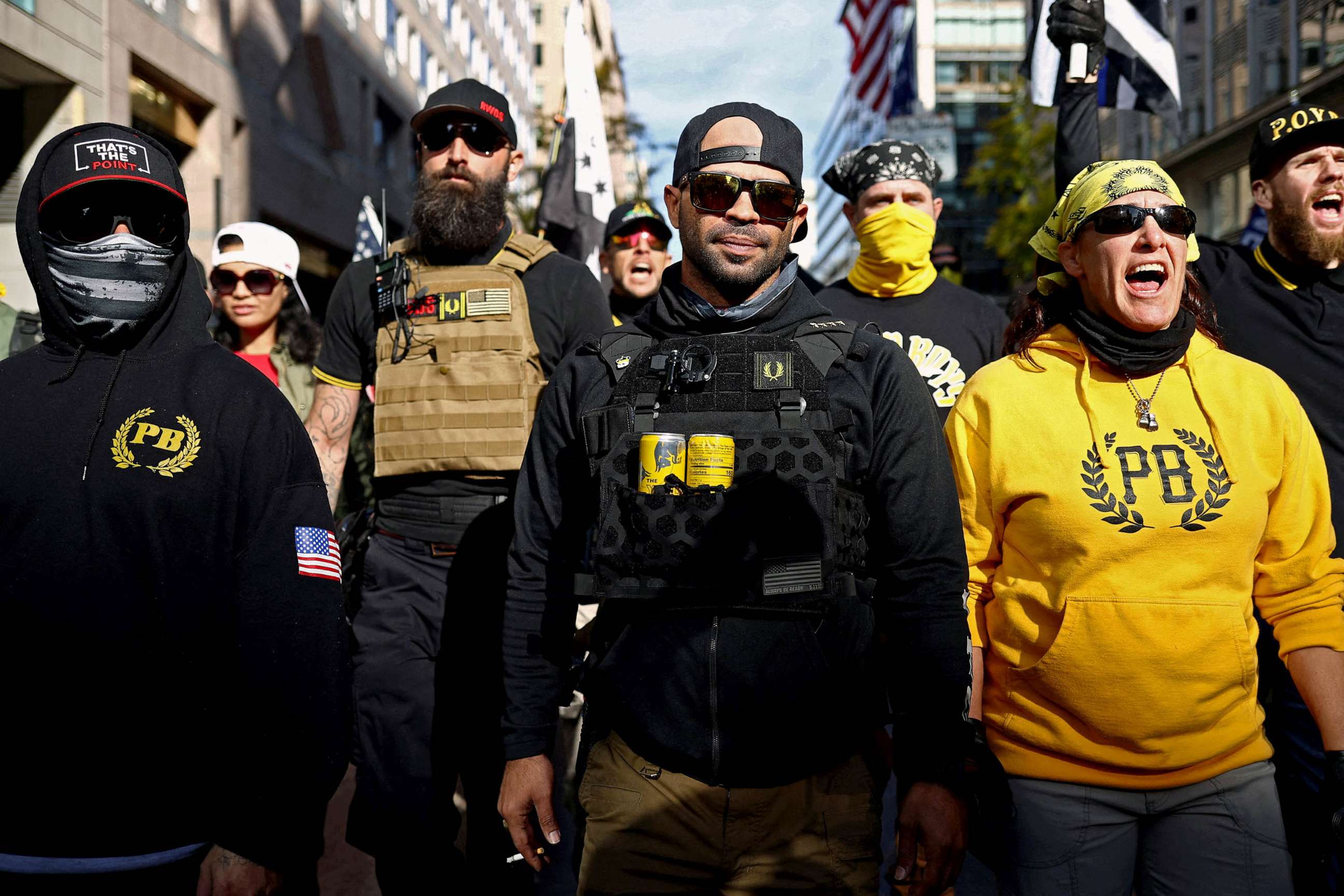Proud Boys Jan. 6 trial moving at snail's pace marked by heated arguments and lengthy delays
The Jan. 6 trial of five members of the far-right Proud Boys group is proceeding at an excruciatingly slow pace in Washington, with a panel of defense attorneys engaged in heated bickering, firing off one objection after another, and clearly frustrating the presiding judge.
U.S. District Judge Timothy Kelly paused proceedings Thursday morning after a juror failed to show up to court. It’s the second time in two weeks that the trial has stalled due to an absent juror.
In addition, Kelly has provided a notable amount of latitude for defense counsel to press objections and motions for mistrial. The judge has also often delayed ruling on procedural matters and openly wavered on some decisions.
That long leash seems to have emboldened the defense to engage in informal back-and-forth debates with the judge himself -- and sets the stage for a potentially prolonged appeals process following the trial's end, in the event the accused are found guilty on any of the myriad felony charges they are facing in connection with the Jan. 6 attack.

Enrique Tarrio, the former leader of the Proud Boys, as well as Ethan Nordean, Joseph Biggs, Zachary Rehl and Dominic Pezzola -- who were all members -- each face nine counts, including seditious conspiracy against the United States, conspiracy and the obstruction of the 2020 electoral college certification, interfering with law enforcement and damaging federal property.
All five men pleaded not guilty.
The trial of Oath Keeper leader Stewart Rhodes and his associates late last year was a similarly complex, multi-defendant trial. However, the procedural work of that jury trial was far from the contentious atmosphere in the case now before Kelly.
The Proud Boys' trial is on track to take several weeks longer than that of the Oath Keepers, which was already a marathon case involving the rarely prosecuted charge of seditious conspiracy. At its current pace, this trial will likely continue for at least another month.
It has already included testimony about the extremist group's beliefs and discussions before Jan. 6 and how one police officer had privately sent information about law enforcement operations.
The jury for the Proud Boys has on many days been kept waiting behind closed doors for hours as the defense counsel and prosecutors work through a mountain of procedural hurdles.
One day last week, for example, the court was scheduled to assemble at 9:30 a.m., but a series of evidentiary matters and arguments -- mainly regarding admissibility of evidence and witness testimony -- meant the jury was not brought into the court room until nearly noon.

Kelly was appointed to the U.S. District Court for the District of Columbia by then-President Donald Trump in 2017. His Senate confirmation was nearly unanimous, opposed only by Democrats Kirsten Gillibrand and Elizabeth Warren. Kelly formerly served as a federal prosecutor and, more recently, as senior counsel to Chuck Grassley in his role as Senate Judiciary Committee chairman.
“I need to control the court room,” Kelly said at one point last week, raising his voice and admonishing defense attorney Carmen Hernandez for interrupting opposing counsel.
The heated exchange focused on whether prosecutors could have an off-the-record discussion with their own FBI witness about the use of confidential informants. With multiple, vigorous objections from the defense, Kelly ultimately allowed the discussion with defense counsel present.
Prior to that exchange, defense counsel moved to block the government from admitting a vulgar homophobic statement about the Proud Boys’ views against informants who may be in their ranks. Kelly wavered on the decision, first questioning its relevance and then saying he would admit the exhibit.
Even after appearing to make a decision, Kelly continued allowing arguments from the defense questioning his ruling. After hearing the separate issue about questioning the FBI witness, Kelly again changed his mind. He said he had not fully realized the anti-informant comment had been said in a smaller group message chat of Proud Boys, rather than a separate group chat used by more members, and therefore the value of the evidence was more limited.

Defense attorneys have moved for a mistrial several times to no avail, even threatening to withdraw from the case in protest at times.
“It wouldn’t be a day in this trial without a mistrial motion,” Kelly quipped.
The juror absent on Thursday is expected to be back in court Friday when the trial is set to resume with testimony from a former Proud Boys member who pleaded guilty to seditious conspiracy last year.




